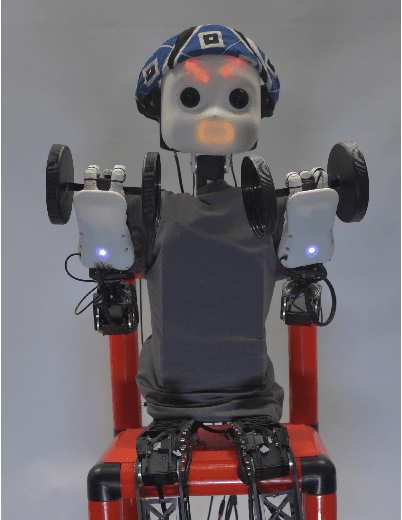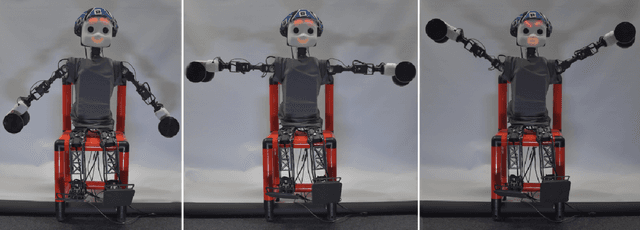Tayfun Alpay
Exercise with Social Robots: Companion or Coach?
Mar 24, 2021

Abstract:In this paper, we investigate the roles that social robots can take in physical exercise with human partners. In related work, robots or virtual intelligent agents take the role of a coach or instructor whereas in other approaches they are used as motivational aids. These are two "paradigms", so to speak, within the small but growing area of robots for social exercise. We designed an online questionnaire to test whether the preferred role in which people want to see robots would be the companion or the coach. The questionnaire asks people to imagine working out with a robot with the help of three utilized questionnaires: (1) CART-Q which is used for judging coach-athlete relationships, (2) the mind perception questionnaire and (3) the System Usability Scale (SUS). We present the methodology, some preliminary results as well as our intended future work on personal robots for coaching.
Semi-Supervised Phoneme Recognition with Recurrent Ladder Networks
Sep 18, 2017



Abstract:Ladder networks are a notable new concept in the field of semi-supervised learning by showing state-of-the-art results in image recognition tasks while being compatible with many existing neural architectures. We present the recurrent ladder network, a novel modification of the ladder network, for semi-supervised learning of recurrent neural networks which we evaluate with a phoneme recognition task on the TIMIT corpus. Our results show that the model is able to consistently outperform the baseline and achieve fully-supervised baseline performance with only 75% of all labels which demonstrates that the model is capable of using unsupervised data as an effective regulariser.
 Add to Chrome
Add to Chrome Add to Firefox
Add to Firefox Add to Edge
Add to Edge